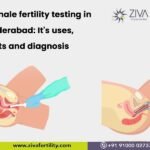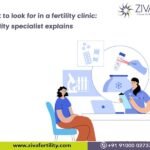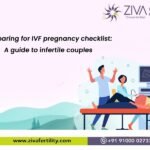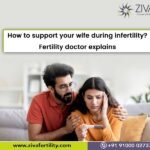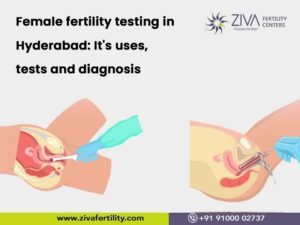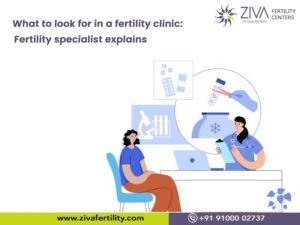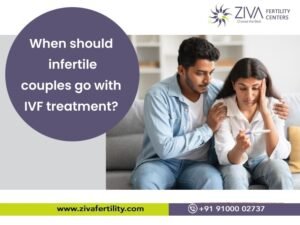According to the World Health Organization, over 10% of the female population of reproductive age suffers from endometriosis. In endometriosis, the tissue, like the lining of the uterus, grows outside the uterus. The tissue can grow on other organs throughout the pelvis, such as the ovaries, fallopian tubes, bladder, and sometimes the bowels. Endometriosis causes widespread pelvic pain, severe menstrual cramps, and pain with sexual intercourse.
Most women discover endometriosis only when they have trouble getting pregnant. “Silent endometriosis” is a condition where women do not experience any symptoms of endometriosis but may have trouble conceiving. Of all those suffering from this condition, 30 per cent of them the only symptom is infertility.
Some of them are conceiving naturally despite the condition. Many need medical intervention and IVF. The most common questions on a woman’s mind suffering from endometriosis are “Can I conceive naturally? Will IVF work if I have endometriosis? Will my ability to conceive be affected due to endometrial lesions?”
The good news is that by following the right IVF endometriosis protocol, and with careful monitoring, along with the right timing, one has a fair chance of getting pregnant even with severe endometriosis.
How does Endometriosis interfere with Fertility?

Scar tissue from endometriosis or damage to the fallopian tubes or ovaries interferes with fertilization or implantation. Endometriosis causes inflammation in the uterus itself, so when a fertilized egg is implanted, there may be a higher risk of miscarriage.
A study published in November 2017 in Fertility and Sterility found that Endometriosis doubles the risk of miscarriage. The effect of Endometriosis on fertility is that :
- It creates a hostile environment for fertilization
- Affects the subsequent implantation of the embryo in your uterus.
- If not treated, it can damage the eggs, block the tubes, form cysts, and change the pelvic environment leading to infertility.
Based on the individual situation, doctors opt for surgery or perform an IVF right away.
Common Symptoms of Endometriosis
Many women with endometriosis experience the following common symptoms:
- Painful periods
- Pain with sex, bowel movements, and/or urination
- Heavy menstrual periods
- Infertility
- Fatigue
- Constipation
- Diarrhoea
- Bloating
- Nausea
The success rate of IVF treatment for women with Endometriosis

IVF success depends on the stage of endometriosis the patient is in. A laparoscopic surgical evaluation will help identify the location and stage of the disease.
Stage I and II of Endometriosis
In Stage 1 endometriosis, there are a few areas of tissue outside the uterus that are quite small. There is no scarring at this stage, and the tissue often impacts the abdomen or pelvis. In stage 2 endometriosis, mild symptoms, with some scarring, tend to appear.
The good news is that for those in stage I or II of endometriosis, there is a higher chance of pregnancy via natural means or IVF. Stage I and II endometriosis rarely impact fertility. Doctors prescribe medications, hormonal treatments, or at the most, intrauterine insemination (IUI). Another happy surprise is that natural conception has been found to suppress the symptoms of endometriosis.
Stage III and IV of Endometriosis
Stage 3 is more moderate, and there are deep implantations of uterine tissue. Cysts and “adhesions” (thicker scar tissue) are present. Stage 4 Endometriosis is the most severe form, with thick scar tissue. It is also characterized by deep invasion of the uterine tissue, along with large and multiple cysts on the ovaries and other areas.
Stages three and four are advanced stages of endometriosis, and infertility is common here. IVF is one of the best solutions for Stage III and IV endometriosis. Studies revealed that for every 100 women, the IVF success rate with stage III & IV endometriosis was 56.7%, while that with stage I or II endometriosis was 67.7%.
If you have been diagnosed with endometriosis, depending on the severity, our specialists at the ZIVA clinic will recommend surgery, IVF, or other ART procedures. Donor eggs are another option for women of advanced age or who have poor egg quality because of endometriosis.
Should one treat endometriosis before an IVF?
As described above, the endometriosis stage largely affects the treatment modality and IVF. If the lesions are larger than 4 cm with too many Endometriomas, they are surgically removed before an IVF.
For women with the following conditions, treatment for endometriosis precedes IVF:
- Good ovarian reserve
- Fallopian tubes are healthy
- The male partner has a good sperm count
- The age of the female is between the late 20s and early 30s
- No previous surgeries
- If the lesions are growing rapidly and are larger than 5 centimetres.
For women with the following conditions, IVF is done directly, even with endometriosis:
- Ovarian reserve is not good
- If endometriosis reoccurred after surgery
- Fallopian tubes issues
- Advanced age (late 30s and higher)
- Male partner sperm issues
What is the ‘Endometriosis Fertility Index’ Score?
EFI determines the chances of post-operative pregnancy. The calculation is based on age, years of infertility, prior pregnancy status, etc. One should have a higher EFI score for higher chances of pregnancy postoperatively.
| EFI Score | Treatment |
| 9 -10 | High chance of conceiving; start with timed intercourse |
| 7 – 9 | Good chances, but may start with IVF |
| < 7 | Low pregnancy rate |
Endometriosis Excision Surgery
The main goal of an Endometriosis Excision surgery is to get rid of the endometrial lesions and scar tissues. The surgery also helps in enhancing your chances of conceiving and reduces miscarriages. The patient is given general anaesthesia, and depending on the severity of the case, it usually takes 30 minutes to up to 6 hours. There is another method where the surgeon may destroy this tissue with heat.
Depending upon your recovery, the best time to perform IVF after endometriosis surgery is 7 months to 2 years.
At ZIVA Fertility Centre, we offer different fertility treatments for Endometriosis treatment. Depending on case by case basis, we recommend medications, hormones, IVF, IUI, or endometriosis excision surgery.
IVF works well with endometriosis, and for those in stage 3 or 4, IVF is often the recommended solution. In an IVF, eggs are retrieved from the female, and sperm is collected from the male. The sperm and eggs are fertilized in a lab to form an embryo. After the embryo grows to the required size, it is carefully transferred into the female’s uterus.
With the right help, you can get pregnant even with severe endometriosis. We at ZIVA Fertility Centre have performed IVF on Endometriosis females. We offer excellent endometriosis treatment too. Please visit our website https://zivafertility.com/ or contact us at +91-9100002737, +91-9392834024, and Info@zivafertility.com.


